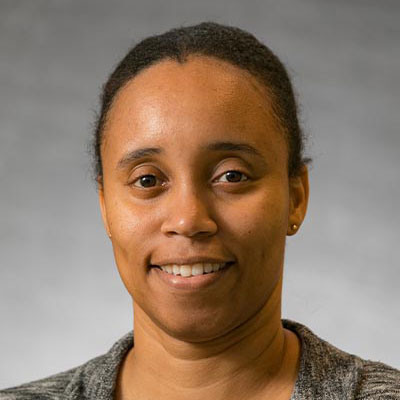McFarlane Named ADVANCE Professor, Giving Faculty Candidates Independent View

When candidates are brought in for interviews during the process of filling faculty positions, they can have questions about the campus that they might soon call home that they might not feel at ease asking the formal search committee.
The Tickle College of Engineering is creating a new position to be a neutral party, someone outside the official hiring group as a way to solve that problem by giving candidates an outlet to get answers to questions that matter to them, but that they might not feel appropriate asking a group determining whether they would get the job.
The TCE ADVANCE Professorship will allow candidates to have personal interaction with someone to answer questions about topics such as campus climate, leave policies and benefits, or issues surrounding inclusivity, religion, or family matters.
Associate Professor Nicole McFarlane of the Min H. Kao Department of Electrical Engineering and Computer Science will be the first TCE Advance Professor, and she is already looking forward to the role.
I am pleased to be taking on this new responsibility and in helping faculty candidates gain a better understanding of what is going on here in the college and at UT. Choosing whether or not to join a university defines a faculty member for years or even decades, so it is important that people know what they need to about their potential academic home.
—Nicole McFarlane
In the new position, McFarlane will work with UT’s Adaptations for a Sustainable Climate of Excellence and Diversity (ASCEND) program to develop resources and information for prospective faculty candidates to help inform them on the college and what kind of career they might expect at UT.
The new professorship is part of a larger initiative that the college is undertaking to promote a more diverse and inclusive faculty, something the National Science Foundation has been keen on taking on around STEM-related areas.
The NSF began the “ADVANCE: Organizational Change for Gender Equity in STEM Academic Professions,” in 2001 as a way to begin help recruit, retain, and encourage women in STEM-related fields, and has expanded its goals and outreach in the years since.
Like other groups, agencies, and universities, the NSF understands that increased diversity leads to an growth in the number of perspectives being brought to bear on a problem, improving chances for better outcomes and breakthroughs.